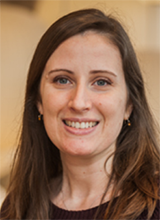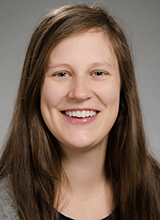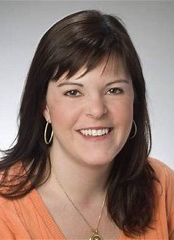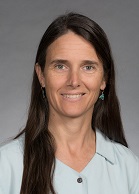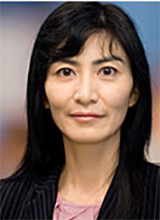Dr. Neuhaus has a broad research focus on social-emotional processes in individuals with neurodevelopmental disorders, particularly children with autism spectrum disorder (ASD), attention-deficit/hyperactivity disorder (ADHD), or inherited or de novo genetic events. Dr. Neuhaus’s research is informed by a number of methodological approaches, including clinical/behavioral assessment and physiological measures such as EEG and autonomic biomarkers. Dr. Neuhaus is particularly interested in how social and emotional processes relate to brain function and development, and in how they interact with one another to influence diagnostic outcomes (e.g., phenotypes within autism) and psychiatric trajectories over the course of development. Clinically, Dr. Neuhaus specializes in diagnostic assessment of ASD.
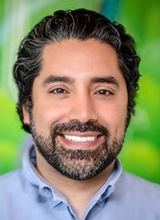
I am a Board-certified Child and Adolescent Psychiatrist at Seattle Children’s Hospital, a faculty member of the University of Washington School of Medicine since 2020, a board member of the ARC Trust of Washington. Clinically, I am an inpatient attending psychiatrist on the Psychiatry and Behavioral Medicine Unit at SCH, and I also see children and families on an outpatient basis at the SCH Autism Center. In each of these roles I am involved in the teaching and supervision of medical students, residents, and fellows. Academically, I am the Director of Career Advising in Psychiatry, helping guide graduating medical students towards residency and careers in Psychiatry. In the CAP fellowship, I am the course director for the Genetics component of the didactics series, and also presenter for the Child Psychiatry portion of the Mind, Brain, and Body course. My professional interests include autism spectrum disorder, neurodevelopmental and genetic disorders, catatonia, bullying, trauma-informed care, and anxiety in children of immigrant families. In all facets of my work I utilize evidence-based practices, and aim to to create strong partnerships with patients and families to achieve positive outcomes.
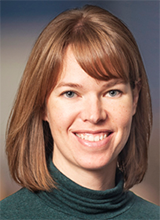
My primary research and clinical interests are in diagnosis and management of neurodevelopmental disorders, particularly, autism spectrum disorder. I am a psychologist at the Seattle Children’s Autism Center where I participate in team evaluations for children and teens with co-occurring medical or psychiatric complexity, and I also see patients through our Gender Clinic. I also work at the University of Washington’s Institute on Human Development and Disability (IHDD) where I see patients in the Infant Development Follow-up Clinic and in the Child Development Clinic. I love the interdisciplinary nature of CHDD and I am proud to be a faculty mentor for the LEND program (Leadership Education in Neurodevelopmental and Related Disabilities). Overarchingly, I am invested in learning more about how to support individuals and families, how to embrace the neurodiversity movement, encourage affirming care where strengths are celebrated, and work toward equitable treatment for the families I serve.
Dr. Megan Goldenshteyn works as a licensed psychologist at the Center on Human Development and Disability (CHDD) in the Child Development Clinic, Cardiac Neurodevelopment Clinic, and the Infant Development Follow-up Clinic. Dr. Goldenshteyn conducts psychological and developmental evaluations and supervises the psychology trainees, including the residents and the psychology practicum student.
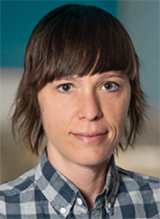
I am a child and adolescent psychiatrist at Seattle Children’s Hospital and faculty member at the University of Washington Medicine. My SCH practice locations include the Gender Clinic (Adolescent Medicine), Outpatient Psychiatry Clinic, Autism Center, and the inpatient unit- Psychiatry and Behavioral Medicine Unit (PBMU). I believe in delivering compassionate, evidence-based care in supporting patients and their families. My approach is both comprehensive and patient-centered, as it is important to consider the needs of the individual while also appreciating societal and cultural context. I specialize in working with diverse patient populations with various marginalized identities, such as those who identify as LGBTQ, gender diverse, and/or neurodiverse. I also work closely with the Adolescent Medicine Gender Clinic in supporting any mental health needs of transgender/gender diverse youth and their families. I also collaborate with colleagues in specialty medical clinics to coordinate care of medically complex patients. Additionally, I serve as a consultant with various school programs to support mental health initiatives and advocacy efforts.
Academically, I am involved with several initiatives both locally and nationally, particularly those that work to promote diversity and equity. I serve on committees supporting the SCH/UW CAP Fellowship Program, educating trainees and students through direct clinical supervision as well as with lectures and discussions. On a national level, I serve on the Sexual Orientation and Gender Identity Issues Committee (SOGIIC) for the American Academy of Child and Adolescent Psychiatry (AACAP). My clinical research focuses on finding strategies to better support the mental health and well-being of patients and families who are LGBTQ+. Additionally, I work on studies that explore the intersection between gender diversity and neuro diversity/autism spectrum.
Personal Statement
Dr. Kathleen Lehman works at the Center on Human Development and Disability (CHDD) in the Child Development Clinic, Down Syndrome Specialty Clinic, Cardiac Neurodevelopmental Clinic, and the Infant Development Follow-Up Clinic as a licensed psychologist conducting neurodevelopmental evaluations and supervising the psychology residents and postdoctoral fellows completing evaluations of children with suspected neurodevelopmental disorders. She is the Associate Director of the Leadership Education in Neurodevelopmental and related Disabilities (LEND) located that the CHDD.
Personal Statement
I am board-certified in general psychiatry and child and adolescent psychiatry. I primarily work at Seattle Children’s Autism Center, where I participate in autism diagnostic assessments, evaluations and management of psychiatric/behavioral comorbidities among children and teens with autism spectrum disorder (ASD) and/or related neurodevelopmental disorders (NDD). I also work at Seattle Children’s Interdisciplinary Clinic for Prader-Willi syndrome (PWS), where I enjoy collaborating with national experts on PWS. My academic passion is to help support the professional development of our general psychiatry residents and child psychiatry fellows in their training and education in ASD and NDD.
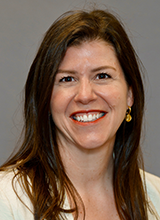
Personal Statement
My primary research and clinical interests are in the diagnosis and etiology of autism. I am passionate about teaching and training in autism and developmental disabilities, and improving access to care and building community capacity for this population. I am the director of the Clinical Training Unit at the Institute on Human Development and Disability (IHDD), and direct the UW Leadership Education in Neurodevelopmental and related Disabilities (LEND) program. I am also the track coordinator for the Autism and Developmental Disabilities Psychology Internship training program and an attending psychologist at the Seattle Children’s Autism Center where I conduct diagnostic evaluations for autism and supervise a variety of trainees. I am investigating various methods for diagnosis in an effort to streamline the process and decrease wait times for an initial diagnostic evaluation for autism. I am involved in implementing and evaluating several Project ECHO programs at IHDD with primary care providers in Washington State, with a goal of improving access to autism-related care closer to home. In the past, I was part of research examining the genetic landscape of autism in order to create meaningful subtypes of the disorder, with a hope of individualizing treatments for people with autism in the future.
